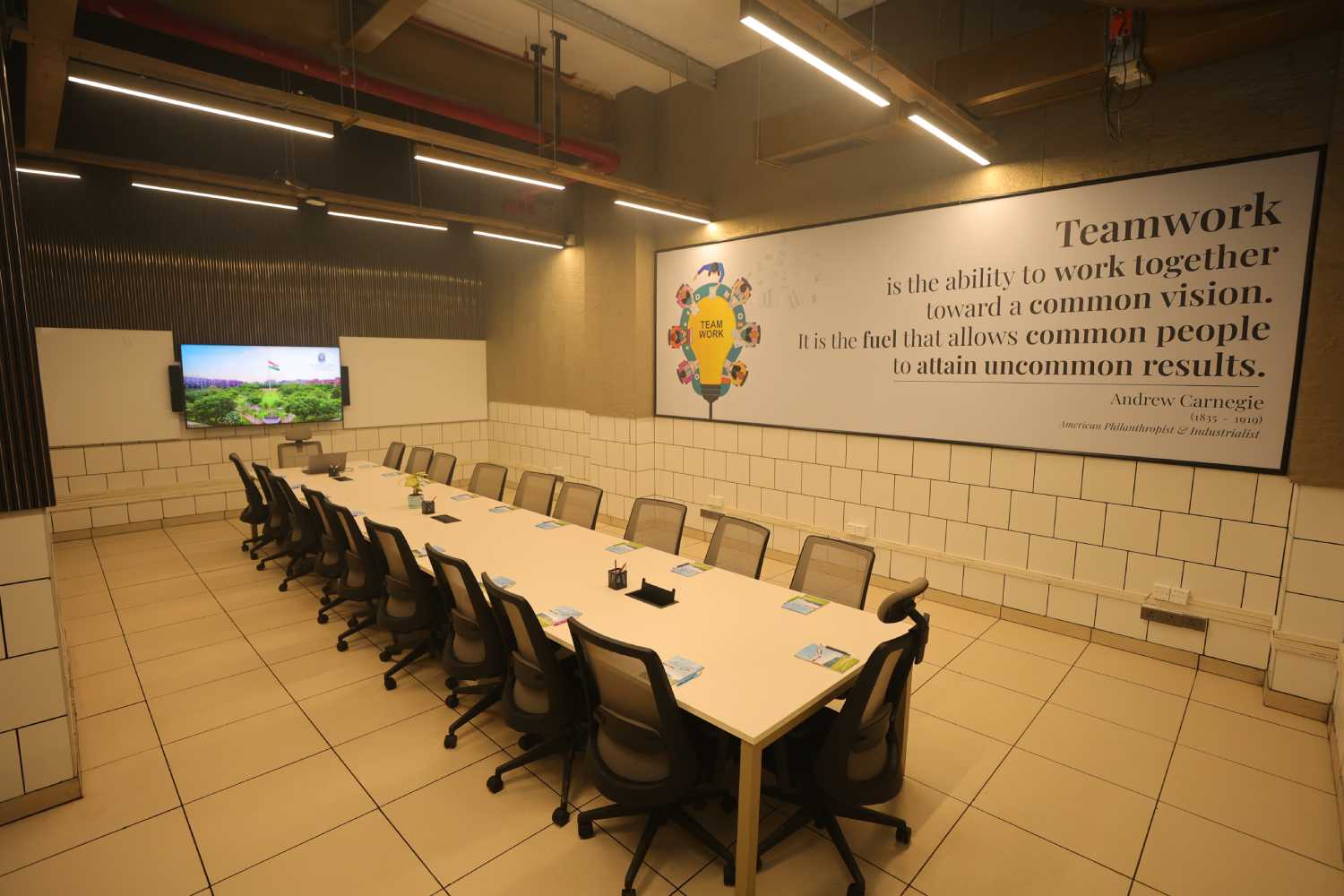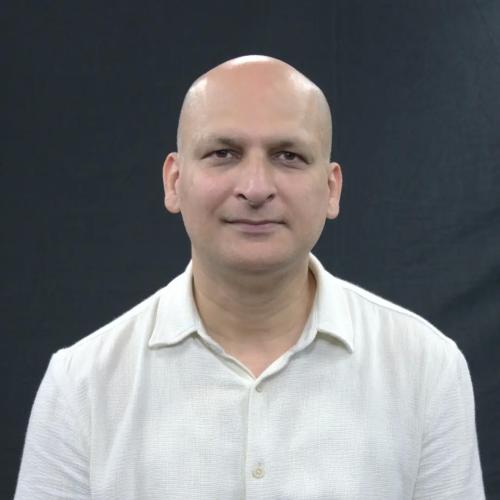
As an inheritor of venerable civilisations, South Asia has seen fluid political, economic, and cultural interaction in recent historical memory. Unfortunately, today, it is the least integrated of the world’s contiguous land masses, racked by interminable hostilities, poverty, religious extremism, low levels of people-to-people contact, and the threat of nuclear conflict. Even as these old challenges continue to simmer, new challenges in the form of climate change, the new economy, new entrants in South Asia and the new world order are fast emerging.
The Centre for a New South Asia seeks to mitigate the challenges of this region of great potential and immense risk by reviving that liberal and free exchange which formerly existed, and which is the foundation of peace and civilizational growth.. CNSA utilizes interdisciplinary research, debate, dialogue, performances, and ideas to advance this goal.
Mission

Prof. Mohsin Raza Khan
Executive director New South Asia at JSIA
Professor Mohsin Raza Khan is a Professor at the Jindal School of International Affairs, O.P. Jindal Global University, Executive Director of the Centre for a New South Asia, and host of The Prof. K Show on YouTube, with prior professional experience in banking and risk management in Dubai and academic expertise in development, foreign policy and international political economy.
Trained as an economist, he holds degrees from the University of Delhi, Johns Hopkins University’s School of Advanced International Studies, and the University of Hull, where he was a British Chevening Scholar, and is also a certified Financial Risk Manager (FRM) from GARP, New York. His teaching, research and public commentary explore historical global development trajectories, ethnic conflict, economic interests in foreign policy, great power politics, India–Pakistan relations and wider questions of faith, society, political economy and contemporary international affairs.
His articles have appeared in the Diplomat, Indian Express, Hindustan Times, The Times of India, Deccan Herald including frequent appearances on leading Indian podcasts and media platforms like The Jist, Aaj Tak Radio, The Ranveer Show, among many.
Podcasts and News Appearances
Why India has been hit with 25% tariffs amid ongoing negotiations | DW New
https://www.youtube.com/watch?v=PW9SlNQBgpc
Modi-Trump 'Bromance' Over? US 50% Tariffs an Economic Attack on India | The Wire Live
https://www.youtube.com/watch?v=-YuUhfuJxUY
US doubles tariffs on India over ongoing purchase of Russian oil | DW News
https://www.youtube.com/watch?v=EihSr8NC6so
Why Nepal’s Gen Z is Angry & What It Means for India
https://www.youtube.com/watch?v=9N-2Ewt6iBM
India vs Trump: The Price of the New Trade War
https://www.youtube.com/watch?v=sTwCkumVniE
Is Trump Bad News For India? Indo-US Relationship Explained | Jist Podcast ft. Mohsin Raza & Mukul
https://www.youtube.com/watch?v=K-gLTSY7ZoY&t=22s
Islam, Christianity, Hinduism & More | Mohsin Raza Khan On History Of Religion, The Ranveer Show 262
https://www.youtube.com/watch?v=-9z_2lvz2xU
The Wisdom of Sufism: Mohsin Raza on Spirituality, Dargahs & Mystical Stories | TRS
https://www.youtube.com/watch?v=yTZdRdh8hrU
Will India Go to War with Pakistan After Pahalgam Attack? | Jist Podcast ft. Mohsin Raza & Mukul
https://www.youtube.com/watch?v=oOuzxWLG90o
Trump vs Elon Musk: How Did Friends Become Enemies ft. Prof Mohsin Raza | Jist
https://www.youtube.com/watch?v=1Hv9hLfoVoA
Qatar पर हमला कर क्या Netanyahu ने ग़लती की और क्या Israel के सामने Arab NATO टिकेगा?: Padhaku Nitin
https://www.youtube.com/watch?v=JjQnPWE13Z0&t=2s
Trump की ज़िद्द, Musk की मचलन, India की उम्मीदें और China का डर: Padhaku Nitin
https://www.youtube.com/watch?v=BGcXN1DWDHE
Israel-Iran War Explained ft. Mohsin Raza & Mukul | Jist Podcast
https://www.youtube.com/watch?v=kbu2zccEt4o
Career, Purpose and Happiness: A Guide for the Perplexed
https://youtu.be/Og4RsDx__vI?si=F-l3ZQEZ9BgQSvrH
Career, Purpose and Happiness: A Guide for the Perplexed | Part 2 | Mohsin Raza Khan
https://youtu.be/xgfd7WjrL3Y?si=Fj0YFDV4-Ree07t-
Tackling ADHD with Derek Lindquist & Prof K | Pt. 1
https://youtu.be/nR_ryfx4XVg?si=nI-wLHL_cOc9nzaC
What Really Happened in Venezuela ft. Prof. Mohsin Raza Khan | The Jist
https://youtu.be/ZVfX0TgRYY8?si=tbnf5xAJtIWK2H_j
Maduro के Kidnap की कहानी, America की Oil Thirst और South America का Crisis! | Padhaku Nitin
https://youtu.be/zlh-BsqSKCE?si=O6kYsppe4hXDnWae
Something Big Is Going To Happen In Iran
https://www.youtube.com/watch?v=gXNxXKwncSs
Europe Par Sankat, Greenland Ka Sanket | Prof K Explains | Prof Mohsin Raza Khan
https://www.youtube.com/watch?v=qoaVaflHCMk
'Together, India and Russia will become an important force' — What does India want from Russia
https://youtu.be/83oxhwu4cGU?si=a3FK4QSuR87FddT1
Why Iran Never Finds Peace ft. Dr. Mohsin Raza Khan | Jist
https://www.youtube.com/watch?v=KXrVxWtSzsY

Prof. Tridivesh Singh Maini
Senior Fellow
Tridivesh Singh Maini is Assistant Professor at The Jindal School of International Affairs, OP Jindal Global University, Sonipat, Haryana. He is a former SAV Visiting Fellow (Winter 2016) with the Stimson Centre, Washington DC. Mr Maini was also a Public Policy Scholar with The Hindu Centre for Politics and Public Policy, Chennai (November 2013-March 2014). He was also an Asia Society India-Pakistan Regional Young Leaders Initiative (IPRYLI) Fellow (2013-2014)
His research interests include — India’s ties with its extended neighbourhood (with a focus on Gulf and Iran), Geo-economics in South Asia and the role of India’s states in economic diplomacy. Maini is a regular contributor for a number of publications including — The Geopolitics, The Rise, Loopmedia and South Asia Monitor.
He has authored ‘South Asian Cooperation and the Role of the Punjabs’ (2007). Maini is also one of the editors of ‘Warriors after War: Indian and Pakistani Retired Military Leaders Reflect on Relations between the Two Countries, Past Present and Future’, published by Peter Lang (2011). He has co-authored, Humanity Amidst Insanity: Stories of Compassion and Hope during the Indo-Pak Partition (2022 ) with Tahir Malik and Ali Farooq Malik (a new edition of ‘Humanity Amidst Insanity: Hope during and after the Indo-Pak partition’ published in 2008).

Aarogya Mohan Kaphle
Centre Coordinator
Mr. Aarogya Mohan Kaphle is a young, inquisitive, and highly result oriented student who is pursuing B.A. (Hons.) Global Affairs degree from the Jindal School of International Affairs
Currently, he is serving as a member of Diplomania; a flagship society under the school and working in the Jindal Global Centre for G20 Studies as a researcher. He is also affiliated with the Foreign Policy Research Centre in New Delhi as a research intern.
Prior to university education, he was actively engaged in different social initiatives for half a decade in his hometown; Pokhara, Nepal. As part of this, he successfully lead a youth organization named Leadership Forum Pokhara as a Founder Coordinator and served as Spokesperson of Metropolitan Child Forum Pokhara.
Title : Diplomacy in South Asia: Multiple Layers
Initiative Brief
Introduction :
The Centre for a New South Asia is a research centres which seeks to study the geo-political dynamics of South Asian nations under various parameters. Foreign Policy is one such integral determinant which shapes country’s regional and international affairs conduct. Considering this, the Centre underscores the increasing importance of Non-Central Governments (NCG) and non-governmental actors including business, think-tanks, media in foreign policy.
Introduction :
The Centre for a New South Asia is a research centres which seeks to study the geo-political dynamics of South Asian nations under various parameters. Foreign Policy is one such integral determinant which shapes country’s regional and international affairs conduct. Considering this, the Centre underscores the increasing importance of Non-Central Governments (NCG) and non-governmental actors including business, think-tanks, media in foreign policy.
Rationale :
Geo-politics in contemporary times plays a huge role in defining our day-to-day lives and it is very much important to look into the aspects that factor into defining the foreign policy of a state, under the umbrella of CNSA, this initiative will examine the role of stake holders — business, think tanks, NGOs, non-central government’s (state and provinces) in the context of South Asia’s foreign affairs.
Objectives :
Working Module :
Team Details :
Team Lead: Tridivesh Singh Maini
Coordinator: Chelikani Dharma Teja
Resource Person : Aarogya Mohan Kaphle
For more details and enquiry :
Feel free to reach us via tsmaini@jgu.edu.in (Tridivesh Singh Maini-Team Lead),
22jsia-cdteja@jgu.edu.in (Chelikani Dharma Teja-Coordinator), 22jsia-amkaphle@jgu.edu.in (Aarogya Mohan Kaphle- Resource Person) or cnsa@jgu.edu.in (Centre Mail).
Title : Update on CNSA Research : Regional Cooperation in South Asia
a)This title should be an openable link to be placed in On-going Projects section and after clicking upon it should be able to re-direct to another window.
b) Photo to be posted in the news report is attached along with this mail. Please find the attachment.
News report to be published are as follows :
29 August 2023
The Centre for New South Asia (CNSA), in collaboration with Pokhara Research Centre, a Nepalese think tank is currently engaging in a research project entitled ‘Regional Cooperation in South Asia’. This project seeks to provide a comprehensive causal analysis about the prospects and challenges of Regional Cooperation vis-à-vis South Asia based on the interviews conducted with Practitioners and Scholars from India and Nepal.
The on-going research is conducted by Coordinator of Centre for a New South Asia Mr. Aarogya Mohan Kaphle (BAGA’22) under the supervision of Centre Director Prof. Mohsin Raza Khan. As a part of research, interviews with former ambassadors from India and Nepal was conducted including the Former Foreign Minister of Nepal Dr. Bhesh Bahadur Thapa and Former India’s Foreign Secretary Mr. Shyam Saran. From this news report, we would like to share some of the snippets and key takeaways from those interviews which are as follows.
1. Mr. Shyam Saran
Former Foreign secretary of India Mr. Shyam Saran said that any regional cooperation will require a greater physical connectivity among the countries. Beside this, digital connectivity and people-to-people relations are also crucial. He believes that India, the largest country of the region could lead in terms of many agendas. As far as policy is concerned, he said there are studies on inter basin river management, cross border wildlife corridors, overfishing in coastal regions and forest conversation. Also, there are large number of recommendation as well as declaration by SAARC head of states. So, he emphasized that rather than looking for fresh recommendation and studies, if the past proposals and declaration were implemented that could be a big change.
2. Dr. Madan Kumar Bhattarai
Former Foreign Secretary of Nepal Dr. Madan Kumar Bhattrai opines that mutual trust and goodwill are the prerequisite for any regional cooperation. He said that ‘South Asia can take lessons from ASEAN and identify its core areas of cooperation as per potential of countries.’ Giving example from the past, he mentioned the initiation of International Jute Study Group based in Dhaka which is precedent of economic cooperation South Asian countries. Ambassador Bhattarai said that identifying potential areas and developing ‘Growth Quadrangle’ accordingly would always be in the best interest of South Asia.
3. Prof. Dr. Jayaraj Acharya
Former Fellow of the Weatherhead Center for International Affairs at the Harvard University and Former Nepal’s Ambassador to the United Nations Prof. Dr. Jayaraj Acharya is of the view that there is a greater scope of Trilateral Cooperation for Nepal’s Foreign Policy. For Nepal, it’s geographic proximity is significant factor for regional cooperation in South Asia. He particularly emphasized on Maritime Transport Access of Nepal with Bangladesh and India. Moreover, there is scope of electricity trade with Bangladesh, Bhutan, and India. Dr. Acharya mentioned that Nepal should negotiate first bilaterally in agendas relating to the trade and transit, and afterwards place it in the trilateral structure. According to him, practical matters like electricity export and electricity transmission could be done through bilateral and trilateral means because it’s very comprehensive and vague in the regional process.
4. Dr. Bhesh Bahadur Thapa
Former Nepal’s Foreign Minister Dr. Bhesh Bahadur Thapa said economic disparities among the countries have occasionally setback regional cooperation in the South Asia. According to him these complex economic dynamics led two factors into play. There are big countries like India and Pakistan in the region which affected the operation of regional institution in many ways. The bilateral relations between India and Pakistan are one of those important aspects. On the other hand, there is a fear of smaller nation gang-up for regional power. Recalling the historical initiatives took by then leaders of Nepal and Bangladesh, he mentioned that since the inception of SAARC smaller countries saw their interest in the regional cooperation for the larger benefit. Sharing his past anecdotes, he also mentioned that the intellectual backing is comparatively weak in South Asia as compared to the past.
This is an on-going project, and we are still conducting interviews with scholars and diplomats of both countries. Stay tuned and keep following the Centre website for further details regarding the project.
The comprehensive analysis about the conducted research will be disclosed in the research paper which will be released after a few months.
Thank you !
- The Centre for A New South Asia
Thank you for your cooperation.